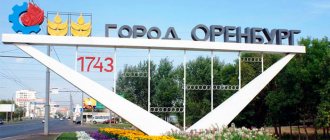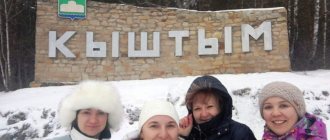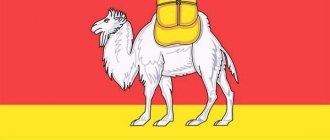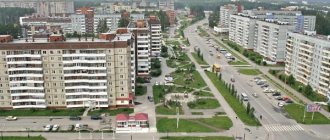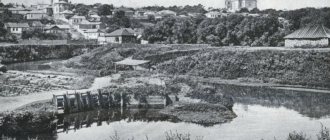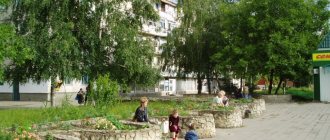Chelyabinsk
Restaurants
Ural dumplings
One of the oldest restaurants in the city, occupying a two-story building in the Central district of the city. Traditional Russian cuisine is served here. Be sure to try the main dish - dumplings; the menu includes both traditional Ural and Siberian dumplings, as well as gourmet dumplings with bear, deer, wild boar and elk meat. On weekdays they offer several types of business lunches. On Sundays you are invited to family dinners. There is a special children's menu; for those who are fasting, they will offer a Lenten menu.
Zhuravlina
A restaurant of Ukrainian cuisine, recommended for those who love tasty and satisfying food. Everything here is thought out to the smallest detail: the interior is in the style of a Ukrainian house, embroidered tablecloths, embroidered pillows on the benches, a menu with colorful photographs and unusual descriptions of dishes, waiters in national costumes. When placing an order, they serve a liqueur and bring fried seeds as a compliment. One restaurant is located in the very center of the city, on the pedestrian street "Kirovka", the second is located in the park area, at the main entrance to the park of culture and recreation. Yu. A. Gagarin.
Balkan grill
The only restaurant serving Serbian cuisine in the city. Convenient location in the city center, several halls, one of them has a grill, quality service (Serbian waiters), live music on Fridays. Decent selection of meat dishes, Balkan wines and spirits. Quality specialty desserts and freshly baked bread. Prices are above average. The restaurant is suitable for family dinners and meetings with friends, banquets and festive evenings.
Saffron
Restaurant for lovers of oriental cuisine. Located on the territory of the park of culture and recreation named after. Yu. A. Gagarin. The restaurant has several indoor rooms, as well as a spacious summer terrace with tables near the pond. A varied menu, including rice dishes, dough, oriental groceries, Uyghur WOK and sweets. We recommend trying kebabs and pilaf. Large wine collection.
Titanic 2000
One of the most famous restaurants in the city, has been operating for more than fifteen years. The interior replicates the interior of a British steamship, with portholes instead of windows, and a selection of antiques. Two main halls with sixty and forty seats, three VIP cabins and a separate cigar room with sofas and easy chairs. The basis of the cuisine is meat and fish dishes. On Fridays and Saturdays there are shows with live music. On weekdays from 12:00 to 17:00, the restaurant offers business lunches: salad, soup, main course, juice, coffee or tea. Convenient location, in close proximity to the central square of the city. Presentation of a new menu annually. "Titanic 2000" was recommended by the Revizorro program and received a branded sticker.
Restaurant-cafe “La Boucherie”
Restaurant serving French and European cuisine (room seats 90). The name is translated from French as “butcher shop”, so it is no coincidence that the menu offers traditional French meat dishes, as well as a variety of poultry and fish dishes. There is a special children's menu and a separate dessert menu. The interior and waiters' costumes are inspired by French culture. It is possible to make cakes to order, discounts are provided for birthday people.
Portofino
A restaurant for lovers of classic Italian cuisine. Located in the Malachite Congress Hotel, it amazes with its exquisite interior and panoramic windows. On weekdays they offer business lunches with a wide selection of dishes.
Breweries
Maximilians
Part of a network of club restaurants offering German cuisine. The restaurant area is about 2,000 sq.m., with a capacity of eight hundred seats. A worthy place for both individual visitors and large companies. There are well-trained waiters, a large selection of dishes offered, and the promotions and discounts offered deserve special attention. The calling card is live beer, which is brewed here in three types: light Lager, dark Dark and wheat Weizen, cost: 190 rubles. for 500 ml., 380 rub. for 1000 ml. The restaurant is known for its music programs, where you can listen to both local performers and leading Russian artists.
Fox&Goose
Irish pub with a good beer list, including ale, porter, and a democratic atmosphere. Located in the city center, on the pedestrian street "Kirovka". Prices are above average. An interesting fact is that V.V. Putin came here during his visit to Chelyabinsk.
Private brewery Spiridonov
Restaurant of live beer using technologies for preparing Czech beer varieties and under the supervision of leading Czech brewers. The main hall seats more than 400 people. Almost every evening there is live music in the restaurant. There is a billiard room with professional tables.
Confectionery
Foam
The first chain of coffee shops to appear in the city, which are famous for their quality coffee and a large selection of signature desserts. In the morning you can come for breakfast; the menu includes porridge, omelettes, croutons, potato pancakes, and cheesecakes. The halls have free access to wi-fi.
Coffeeshop Company
An Austrian chain with good service, fresh pastries, delicious desserts and aromatic drinks. In cold weather they offer blankets. The price level is above average.
Clubs
Night club "Galaktika"
On an area of 1000 sq.m. there is a two-level hall that seats more than a thousand people. Three bar areas, two 3x4 meter screens, high-quality light and sound design, organization of laser shows, themed parties and various competitions, for bowling fans - eight lanes. The billiard club provides training for beginners and organizes tournaments for professionals. The complex includes the Rus restaurant, a hotel and a sauna with four rooms.
Nightclub "Garage Underground"
A symbol of the Chelyabinsk club movement with music in the format of techno, house, r`n`b, electro, drum`n`bass, hip-hop, funk, dubstep, progressive, breaks, etc. Over fifteen years of work, about a hundred people have visited here fifty musicians, producers, bands and DJs from all over the world.
Location, flora and fauna
Chelyabinsk is located on the Ural-Siberian border in the southern part of the mountain range, on the banks of the Miaas River. The temperate climate and widespread forest-steppe zone have created a variety of fauna and flora. Despite the moderately cold winters, broad-leaved forests and coniferous forests find their home here. The fauna of Chelyabinsk is also rich and diverse. There are representatives of valuable fur breeds.
Kovyl in the village of Kasargi, Chelyabinsk region
New in blogs
There are several versions about the origin of the toponym “Chelyabinsk”. The oldest explanation, which existed among the descendants of the first settlers and old-timers, says that the name of the fortress “Chelyaba” goes back to the Bashkir word “Silebe”, that is, “depression; a large, shallow hole." It was given by the name of the tract [3]. This version is supported by the notes of the German traveler I. G. Gmelin, who visited the Chelyabinsk fortress in 1742. Today this version can be considered the most common [3]. Subsequently, various alternative versions appeared: According to researcher A.V. Orlov, the Chelyabinsk fortress was named after the village of Selyaba, which stood on the river. Selyabka [4]. V. A. Vesnovsky also spoke in favor of this version, who wrote in his reference book in 1909 that according to legend, at the time of the founding of Chelyabinsk, the Bashkir village of Selyaba was in this place [5]. According to some scientists (U.K. Safiulin, G.F. Satarov, Yu.G. Podkorytov), the village was founded by the legendary Turkic hero Selyambey [4]. G. A. Turbin believed that this was the village of the Bashkir Tarkhan Taimas Shaimov, who had the honorary title of “Chelyabi” [4]. It is likely that on the site of modern Chelyabinsk there were the patrimonial lands of the Turkic hero Selyabi-Chelebi [4]. Some researchers derive the name from the Turkic root “chelyabi” (“selyabi”), that is, “noble” [6]. There is a version of the origin of the toponym from the name of the river, since a considerable number of villages were named after the rivers near which they were built. It was customary among the Turkic peoples to name rivers after the names of the owners of the patrimonial lands where they flowed. Opponents of this version note that at the time of the appearance of Russians in the Southern Urals (late 17th - early 18th centuries) there were no villages near the river. Miass did not exist, since it was the territory of the Bashkir tribes and it was unsafe to live next to them. During the Tatar-Mongol yoke, the honorary name-title Chelebi (Chelubey) was common. The anthroponym Chelebi in the Islamic world refers to epithets with the meaning of a strong, influential personality (translated from Turkic - “pretty, beautiful, sun-like”). In history one can find many confirmations of the existence of this anthroponym. So, for example, Chelibir was the name of one of the batyrs who served the Chernigov princes. In the 15th century Turkey was ruled by Sultan Mehmed I Celebi. Famous Turkish scientist of the 17th century. Haji Khalifeh went by the pseudonym Katib Chelebi. Translated from Turkish into Russian, “chelyab” means “God”, and “chelyabi” means “divine”, “gifted by God” [4]. Omar Khayyam Chelyabi also had a similar title, meaning “Great”.
Coat of arms
The coat of arms of Chelyabinsk is presented in the form of a French shield. It depicts a loaded golden camel standing on green ground. The animal is located against a silver wall with crenellations. The artiodactyl symbolizes the important transport and trade significance of the settlement. Precious metal indicates greatness and wealth.
The emblem dates back to the historical version. It was adopted by decision of the Chelyabinsk City Duma No. 59/3 of September 12, 2000. Included in the State Heraldic Register of the Russian Federation under No. 688.
Anthem of the Chelyabinsk region
Our land has been majestic since the times of Peter the Great. You are illuminated by the light of great victories. With the sacred metal, with the hand of labor, For centuries you have served our dear Russia. We are proud of you, we are faithful to you, Our Southern Urals are the honor and glory of the country. Your blue lakes, forests and fields There is nothing more beautiful in the world, nothing dearer to the heart. Hope of Russia, her sentry, You keep your beloved Fatherland in peace. We are proud of you, we are faithful to you, Our Southern Urals are the honor and glory of the country.
Words by V. S. Alyushkin, music by M. D. Smirnov.
Adopted on December 27, 2001.
Chelyabinsk State Academic Opera and Ballet Theater named after. M.I. Glinka
Chelyabinsk State Academic Opera and…
Chelyabinsk
The Chelyabinsk Opera and Ballet Theater named after Glinka was founded in 1937 on the site where the Cathedral of the Nativity was previously located. By the beginning of the Great Patriotic War, the building was almost completed, but it housed not a theater troupe, but an evacuee from Moscow.
The Chelyabinsk theater showed its first performance only in 1956 - the artists presented the opera “Prince Igor”. Over the years, famous Soviet artists worked at the theater - conductor Isidor Zak, directors Dmitry Smolich and Niyaz Dautov, ballet soloists Mikhail Shchukin and Vladimir Postnikov and singer Vera Dikopolskaya.
City information
Chelyabinsk is the administrative center of the region of the same name in the Russian Federation. Located on the slope of the Ural Mountains, near the Miass River. The economy is represented by enterprises of the metallurgical, mechanical engineering, textile, electrical, and food industries. There are service and trade companies operating.
Near the settlement there are federal highways: M5 Ural, M51 Irtysh, and a number of European routes. There are major railway lines of the Trans-Siberian Railway. There is an international airport of the same name. There are vocational educational institutions, universities and their branches. The population is about 1 million 200 thousand people.
Chelyabinsk State Puppet Theater named after. V. Volkhovsky
Chelyabinsk State Regional Puppet Theater named after V...
Chelyabinsk
The Chelyabinsk Puppet Theater is one of the oldest in Russia. Its story began with the doll Parsley - with it, dramatic actors Pavel and Nina Garyanov came to Chelyabinsk in the early 30s of the 20th century. Six years later, the country's first studio opened here, where actors and puppeteers were trained.
In the 70s and 80s, the main director of the theater was Valery Volkhovsky, then the era of unscreened performances began - the actor and the puppet became partners on stage. The outstanding puppeteer director is still called the father of the Chelyabinsk puppet theater - in 2006 the theater was named after Volkhovsky.
National composition of the population and migration processes
If the first settlers of Chelyabinsk were Cossacks, then at the beginning of this century representatives of almost a hundred different nationalities and ethnic groups live in the city. The leaders among them, of course, are Russians (86%). They are followed by Tatars (5%), Bashkirs (3%), Ukrainians (1.5%), Belarusians, Germans, Armenians and Tajiks.
The problem of the outflow of its indigenous residents is quite acute in Chelyabinsk. Chelyabinsk residents are actively moving to other, more comfortable and promising cities in the country. The main reasons for such migrations are low wages, poor ecology and a rather difficult criminal situation in the city.
Administratively, Chelyabinsk is divided into seven districts. The largest number of residents was recorded in the Kalininsky district (222 thousand), and the smallest in the Central region (about 100 thousand).

